
The debate around protein runs hot in the keto communities. How much protein is too much on keto, and how much is not enough, are common questions and causes a lot of confusion.
If you like this article please leave a review ⭐️⭐️⭐️⭐️⭐️
There are so many different opinions out there on protein levels on keto, and most are either anecdotal and based on personal experience, or based on a single article or another person’s opinion.
What I aim to do here is to compile the information that is out there, to try and get to the bottom of how much protein you need on Keto.
I have successfully lost 25kgs on Keto without focusing too much on protein, but I do naturally eat a high protein diet with lots of eggs, dairy and meat.
So I have often wondered if I am eating too much protein or not enough?

Here’s a few questions I am wondering;
- Should I be eating more protein or less on Keto?
- Are my Keto macros right?
- Is the maintenance macros of Keto different to the weight loss phase of keto in terms of protein needs?
- Now that I am closing in on ideal body fat and am lifting more weights, do I need more protein on keto?
If you’re struggling with your macros or willpower to stick with keto, my Keto For Life program may help you get back on track.
So many questions, so let’s get into it,

Gluconeogenesis – The argument against too much protein on keto
Gluconeogenesis (GNG) is a long, confusing word often touted in the protein debate.
In layman’s terms, gluconeogenesis is when your body creates glucose from non-carbohydrate sources like protein. Your body does this to keep your blood sugar levels even at times when glucose is low.
The concern around GNG is that eating excess protein will consequently stall or kick you out of ketosis, as your body will be flooded with glucose, which is exactly what we are trying to avoid by eating a Ketogenic diet.
Eating a ketogenic naturally balances your blood glucose levels, so we don’t want anything spiking these again.

Protein – Why Do We Need it on a Ketogenic Diet?
Protein is one of our 3 macros along with fat and carbohydrates.
You have no doubt heard that carbohydrates are the only non-essential macros – you can live on fat and protein alone (but you’ll be eating a lot of steaks!)
Protein on the other hand, is an essential macro that is used for the maintenance of organs and tissues.
This is your lean body mass and is crucial to your health.
So, we know we need protein, but if we consume too much the body has a mechanism to turn it into glucose.
Your brain NEEDS glucose to function, and so when you are not eating carbs, your liver creates it instead.
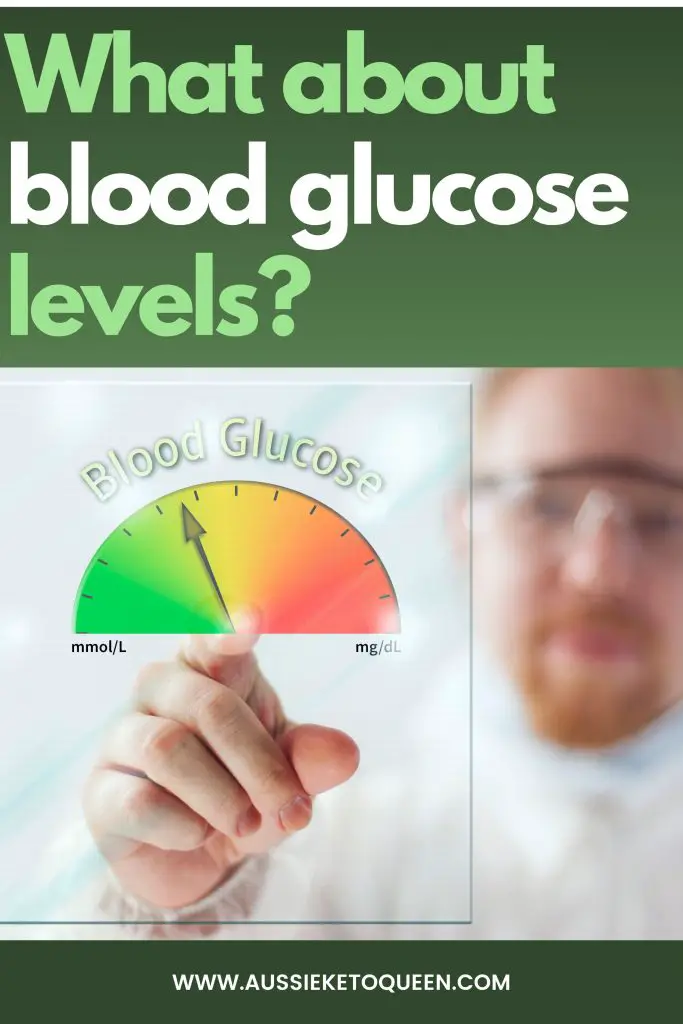
What about blood glucose levels?
A really key consideration when discussing protein and GNG is your blood glucose levels.
One of the big benefits of keto is stabilizing blood sugar levels.
If protein was to spike your blood sugar, it would undo the good work keto is doing, but this doesn’t appear to be the case.
A study completed in 2013 (Fromentin et al., 2013 https://www.ncbi.nlm.nih.gov/pubmed/23274906) put subjects into ‘optimal GNG conditions’.
This means they fasted for 12 hours and were given high protein diets (eggs) and tracked their blood glucose levels.
They basically did a Keto egg fast!
What the study found was that over the course of 8 hours, their livers created around 50 grams of glucose, but only 4 grams of this came from protein – 8% of the total.
The most important message in this study is that is that consuming a high protein diet was not enough to spike their blood glucose drastically.
Your liver naturally creates glucose when you are not eating them (ie. Carbs) and this is why we are able to have steady blood glucose levels on a ketogenic diet.
You NEED blood glucose, and you need it to be nice and level to maintain your energy levels and suppor your brain function.
Another study trialled the same theory (https://www.ncbi.nlm.nih.gov/pmc/articles/PMC424828).
They gave subjects 80g rams of pure glucose, and then compared this with 160 grams of protein (by eating 182 grams of beef, 332 grams of egg white or 86 grams of casein)
What they found was that blood glucose still remained relatively level after eating a huge amount of protein, as shown in the below graph.
What these studies are saying is that eating a huge amount of protein does NOT spike your blood glucose levels like consuming sugar and carbs.
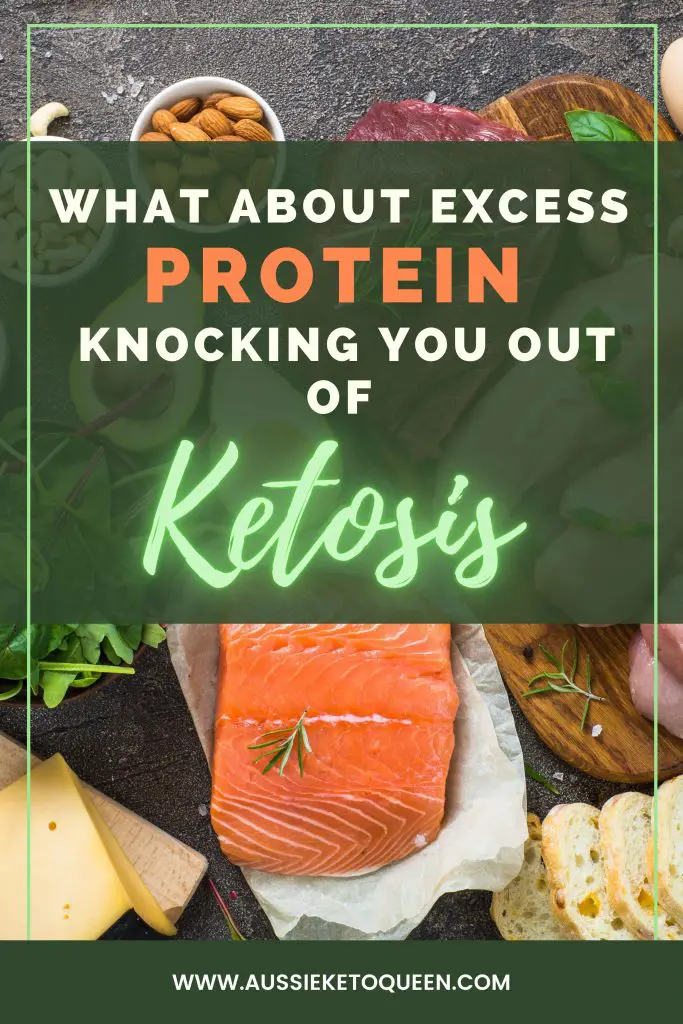
Does excess protein knocking you out of Ketosis?
Obviously our goal on a Ketogenic diet is to be in a state of nutritional ketosis.
One of the much quoted experts on GNG is Lyle McDonald of bodyrecomposition.com. He has written a number of books on the Ketogenic lifestyle.
So will eating too much protein kick us out of ketosis?
The million dollar question.
Here’s the kicker – your body is going to create glucose no matter what you eat – even if you eat 0 carbs.
Your liver is very clever at creating glucose and it isn’t something you need to worry about.
Your body knows how much glucose need and will make this much.
From a Ketogains article, which I recommend if you want to get into the science side,
The best that the scientific studies can tell us is this: The rate of gluconeogenesis is essentially fixed, and there’s not much that we can do to change it.
What you eat can manipulate insulin and slow down GNG, but there is no evidence that we can speed up GNG by consuming more protein (or lactate, or glycerol, or anything else).
So what this is saying,is that there is no point in eating additional protein beyond what your body can use.
It’s not about GNG, it’s not about being knocked out of ketosis, it’s about wasting your time and money!
Protein is expensive, often turns bad quickly sitting in the fridge, can cause indigestion and can throw off your macro ratios.
There is also a serious implication for diabetics and preventing diabetes, as a result of level blood glucose levels, which you can read more about here;
http://ketogains.com/2016/05/protein-over–consumption–ketosis/
Because there has been so much coverage on not overeating potein, a lot of people are scared of it and consequently go with lower protein ratios.
It’s not to be scared of, but it is a goal.
Remember, carbs are a limit, protein is a goal and fat is a lever.
Your protein needs will be determined by the amount of lean mass your body has – ie. Organs and tissues, as these are what require protein.
Also to be considered is whether you are wanting to lose weight or build muscle – building muscle requires protein!
This is why I recommend the Ketogains calculator. It takes all of this into account and is one of the most balanced approaches to protein, fat and carb intake that I have seen.
You can use the calculator here; https://ketogains.com/ketogains-calculator/
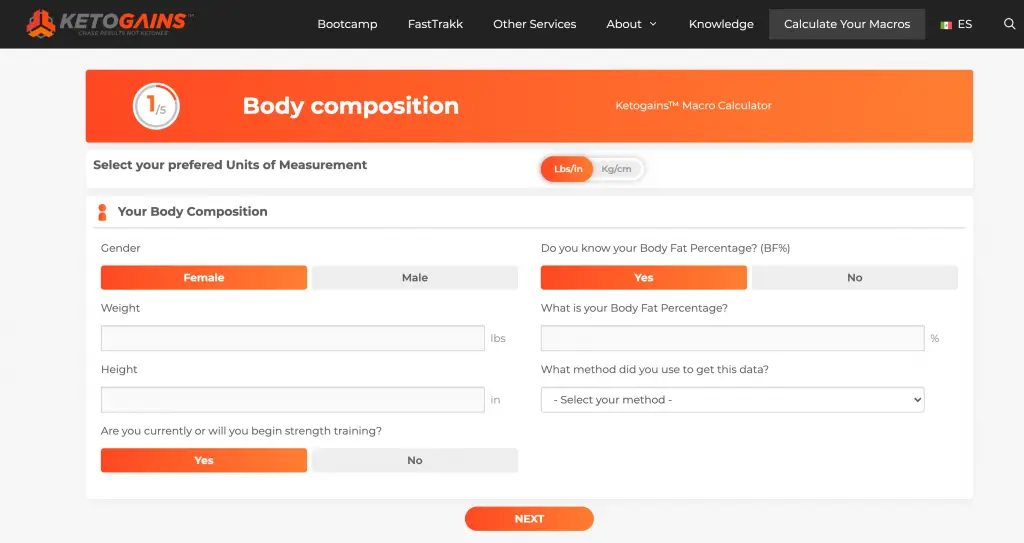
Summary
I could not find any evidence that consuming excess protein, for example 160 grams of pure lean meat, spikes blood sugar and knocks you out of ketosis.
Eating excess protein is simply a waste of time and money, but does not deserve any of the negative press that it receives.
I am curious to see if anyone has found evidence to the contrary and what your experience with protein on Keto has been.
Let me know if the comments below – what have you found in your research and your personal experience of how much protein to eat on Keto.
If you enjoyed this article, don’t forget to rate and review it or share on social media! ⭐️⭐️⭐️⭐️⭐️
Not sure how to start Keto?
Here’s some resources to help you!
- What is Keto?
- What Can I eat on Keto?
- How Much Should I Eat on Keto?
- What To Expect On Keto
- Ketogenic 21 Day Meal Plans
- Preparing for the Ketogenic Diet EBook
- Understanding Net Carbs and Total Carbs

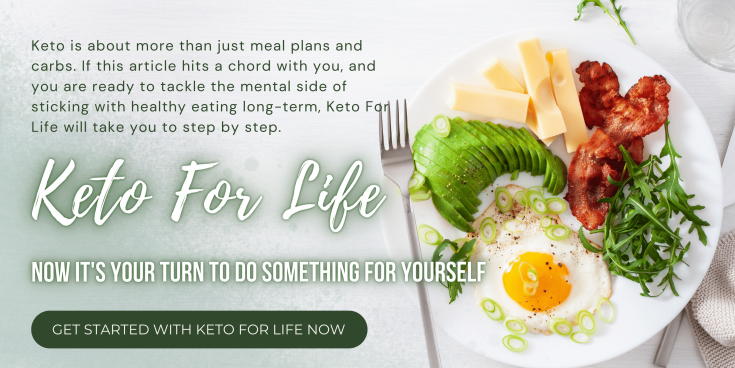

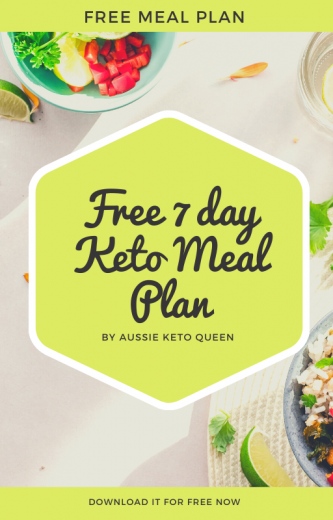



20bet
Friday 15th of September 2023
Your article gave me a lot of inspiration, I hope you can explain your point of view in more detail, because I have some doubts, thank you.
20bet
Monday 4th of September 2023
Your article gave me a lot of inspiration, I hope you can explain your point of view in more detail, because I have some doubts, thank you.
gate io giriş
Thursday 22nd of June 2023
I am sorting out relevant information about gate io recently, and I saw your article, and your creative ideas are of great help to me. However, I have doubts about some creative issues, can you answer them for me? I will continue to pay attention to your reply. Thanks.
gate.io
Tuesday 23rd of May 2023
The point of view of your article has taught me a lot, and I already know how to improve the paper on gate.oi, thank you. https://www.gate.io/pt-br/signup/XwNAU